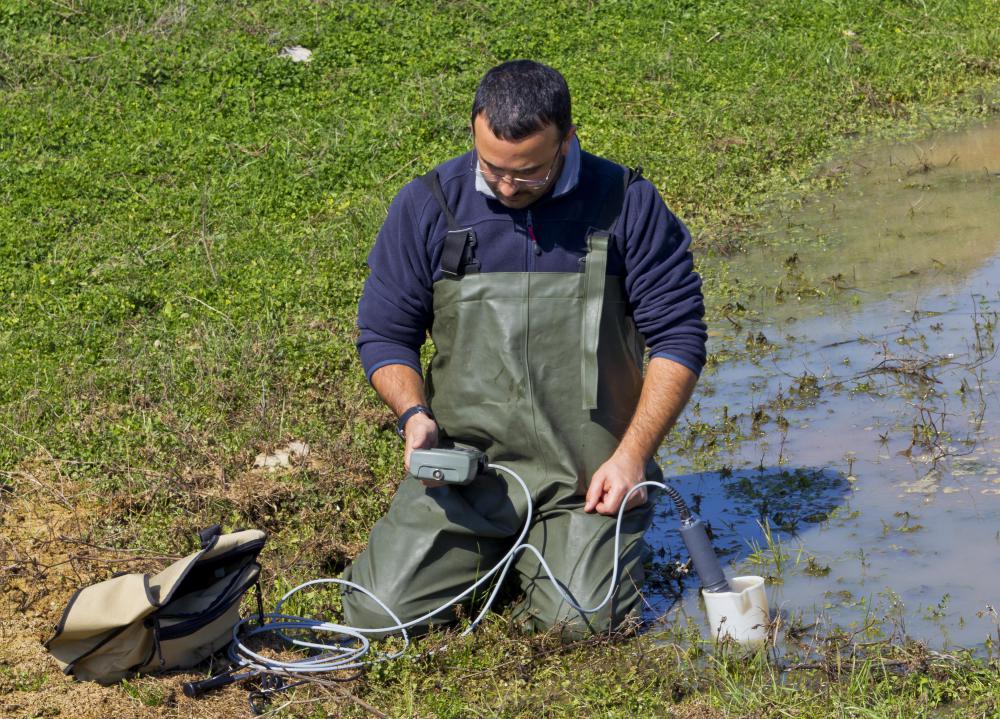At WiseGEEK, we're committed to delivering accurate, trustworthy information. Our expert-authored content is rigorously fact-checked and sourced from credible authorities. Discover how we uphold the highest standards in providing you with reliable knowledge.
How Do I Choose the Best Environmental Assessment Course?
Choosing the best environmental assessment course is a matter of finding a class that helps you to achieve your goals. Individuals at the college level may be interested in environmental assessment courses that can teach them about the field and help them to decide if it is a career path they would like to pursue. Established professionals, on the other hand, may benefit from courses that teach them to incorporate environmental assessment tactics and principles into their daily operations. For an active professional looking for information that he or she can take back to a workplace, the best environmental assessment course might introduce you to specific issues of concern, such as air or water quality.
Environmental assessment is a kind of risk management in which practitioners determine how operations might affect the environment; to minimize effects, they also often identify steps can be taken to reduce negative impact. Principles of environmental assessment are considered important factors in decision making by professionals in virtually every industry. When effective, environmental assessment accurately predicts how the environment is impacted by an activity before it is performed.

If you are interested in learning the basics about environmental assessment, the best environmental assessment course might enable you to learn about basic research and analytic practices. For example, an instructor can ask his or her students to consider the ways in which an organization affects the environment. Students can perform research and come to conclusions regarding potentially negative impacts and how they can be lessened. If possible, an instructor might invite a professional who is familiar with environmental assessment techniques to a class to assess students' presentations and provide feedback.
A decision maker in an organization can benefit from an environmental assessment course. In this case, however, he or she might benefit most from a course related to issues that concern him or her. For example, if a professional is considering a project that might affect a public water source, he or she can learn about standards for water quality. A professional in the manufacturing industry might take an environmental assessment course that focuses on how various production methods affect air quality.
It always is important that you take an environmental assessment course with a trained professional who is familiar with local environmental laws and regulations. If you are considering a course offered by an accredited institution, you might need to have certain qualifications to enroll. For example, some environmental assessment courses require that students have backgrounds in fields such as statistics and chemistry.
AS FEATURED ON:
AS FEATURED ON:











Discuss this Article
Post your comments